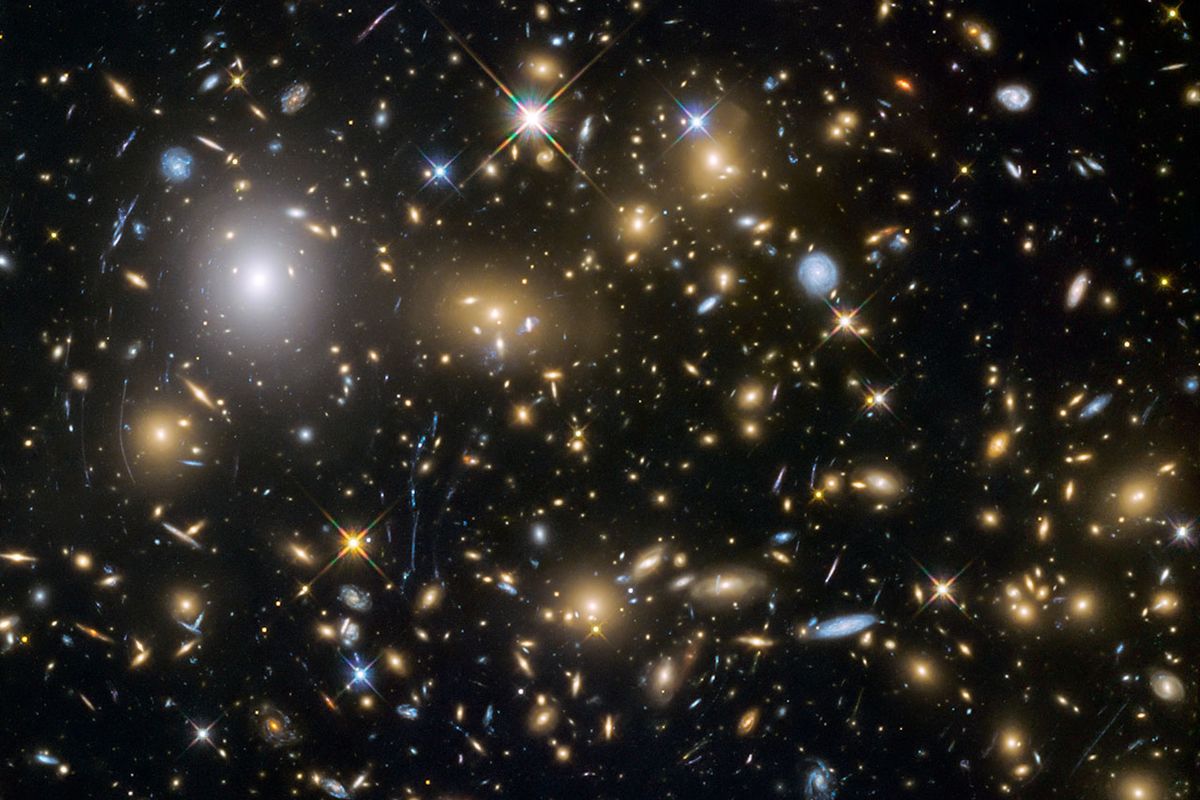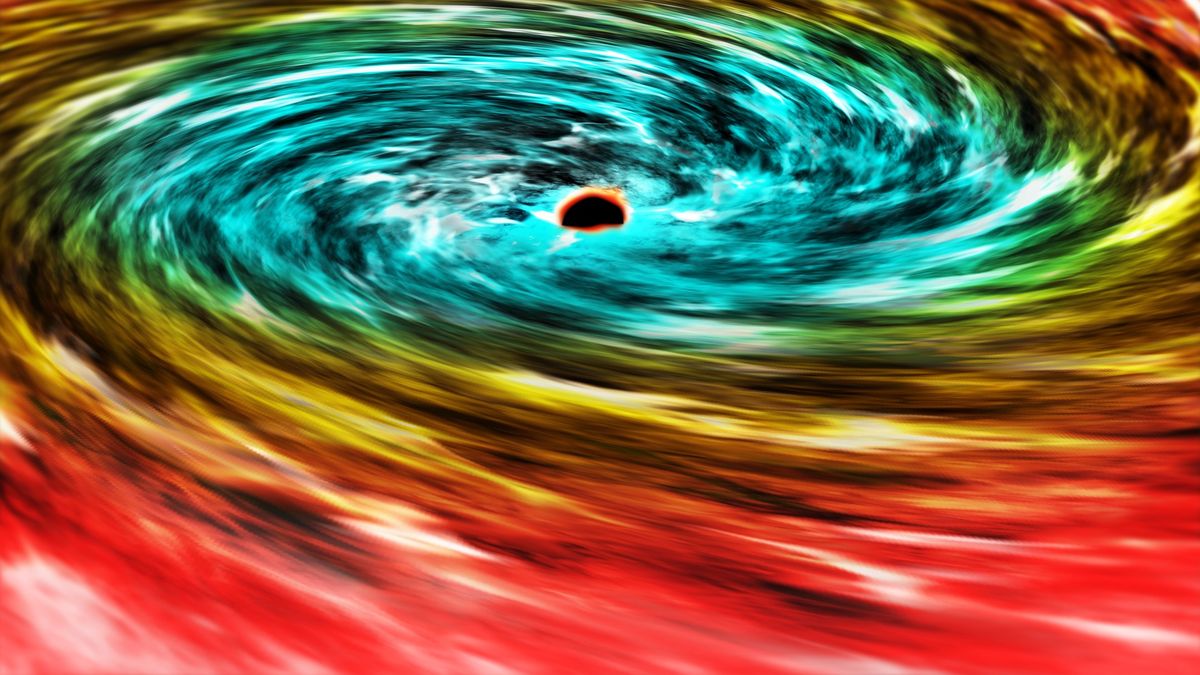A theoretical phenomenon proposed by famed physicist Stephen Hawking may have changed the shape of the universe, new research proposes.
In the 1970s, Hawking introduced a groundbreaking concept: Black holes — traditionally viewed as cosmic entities that engulf everything in their vicinity — might emit radiation similar to the way a heated object does. This phenomenon, now known as Hawking radiation, remains theoretical due to the minimal emission power calculated for stellar and supermassive black holes.
However, a recent study published in the Journal of Cosmology and Astroparticle Physics proposes that this elusive radiation could have significantly influenced the universe’s early structure. The researchers suggest that primordial black holes, hypothesized to have existed shortly after the Big Bang, might have emitted intense Hawking radiation, leaving detectable imprints on the cosmos we observe today.
“An intriguing possibility is that the early universe underwent a phase in which its energy density was dominated by primordial black holes, which then evaporated through Hawking radiation,” the scientists wrote in their study. “This is a generic consequence of ultra-light primordial black holes […], as even a small initial abundance of such objects would quickly come to dominate the universe as it expanded.”
Deciphering Hawking radiation
Hawking’s seminal work partially merged the mathematical frameworks of general relativity and quantum mechanics — two foundational theories of physics that have yet to be fully unified — to explore black hole physics. He found that black holes, once thought to be inescapable traps, could actually emit particles, including photons (light).
Importantly, the emission rate decreases as the black hole’s mass increases, meaning that black holes that formed from collapsing stars, as well as the supermassive ones that anchor galaxies, would radiate so weakly that their Hawking radiation would be impossible to detect with current instruments.
However, it is widely believed that in the early universe, much smaller black holes — each with a mass of less than 100 tons — could have formed. These so-called primordial black holes would have emitted particles at a rate significant enough to influence cosmic structures such as galaxies and clusters.
“Various cosmological scenarios predict the formation of black holes in the early universe,” the authors wrote. “For example, primordial black holes may have formed from the gravitational collapse of overdense regions.”
Notably, the Hawking radiation from these primordial black holes would encompass all particle types, including those hypothetical particles that interact weakly with known particles described by the Standard Model. This implies that such radiation could offer a unique avenue for studying these elusive particles, which may be impossible to produce in particle accelerators.

Investigating primordial black holes’ impact
Employing Einstein’s general relativity equations, the research team analyzed various particles with different masses and spins to determine their impact on the universe’s matter distribution. For example, if a large number of light, fast-moving particles were present, they could impede the formation of small galaxies, as such particles would have difficulty gathering in sufficient quantities to form dense structures. The team also investigated other possible effects these particles might have.
“If any of these particles are stable and persist to the present day, we call them Hawking relics,” the researchers explained in their paper. “Massless Hawking relics would contribute to the cosmic radiation budget […] and could be detected in measurements of the cosmic microwave background.”
The scientists meticulously examined how Hawking relics might influence the current cosmic structure. Although they didn’t find direct evidence of these relics, their analysis allowed them to constrain the properties of both the particles and the primordial black holes that could have emitted them.
“If there were a meaningful number of evaporating black holes during the period when the first nuclei were formed, the predicted number of atomic nuclei in the universe would be incorrect,” the physicists wrote. “We thus require that the primordial black holes evaporate before this period, which gives us an upper bound on their mass of five hundred tons.”
The team also explored the hypothesis that Hawking relics could constitute dark matter, which accounts for approximately 85% of all matter in the universe. Their findings suggest Hawking relics are not a good match for dark matter.
“We constrain the abundance of warm Hawking relics to be less than ∼ 2% of dark matter, even if primordial black holes produced multiple different kinds of relic particles,” the scientists note.
Future prospects
Although current observations haven’t confirmed the existence of Hawking relics, the researchers remain optimistic. They believe that forthcoming instruments with enhanced precision could detect these relics, thereby validating the existence of Hawking radiation and primordial black holes and enabling experimental studies of their properties.
“The discovery of a Hawking relic would open a window to the thermal state of the [early] universe […],” the team wrote. “This would not only be important for early-universe cosmology, but it would also open a new frontier of particle physics beyond the Standard Model and give the first observational evidence for Hawking radiation, black-hole evaporation, and primordial black holes.”
In summary, while Hawking radiation remains a theoretical construct, its potential role in shaping the universe’s early structure offers a compelling avenue for research. The study of primordial black holes and their possible remnants could provide profound insight into both cosmology and particle physics, thus bridging gaps in our understanding of the universe’s infancy.

